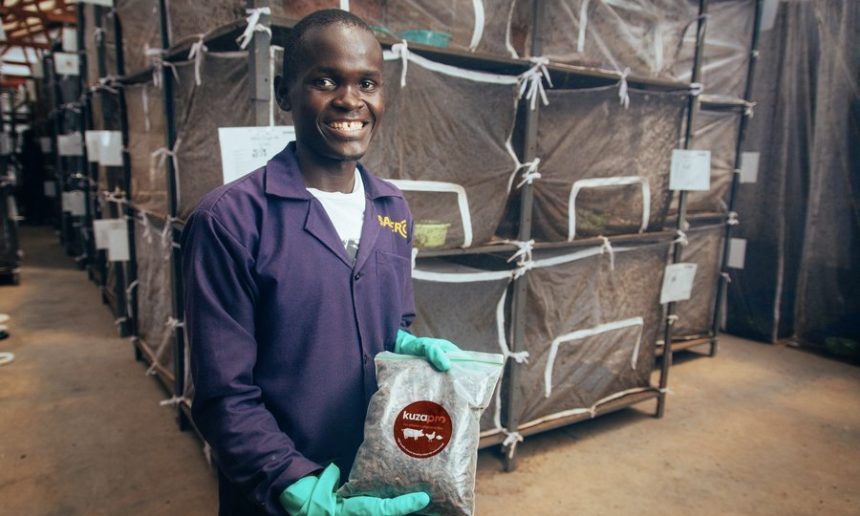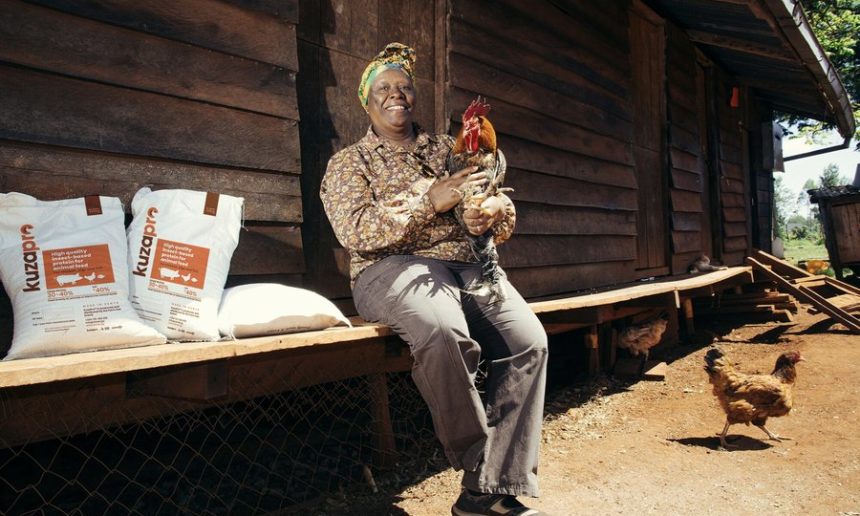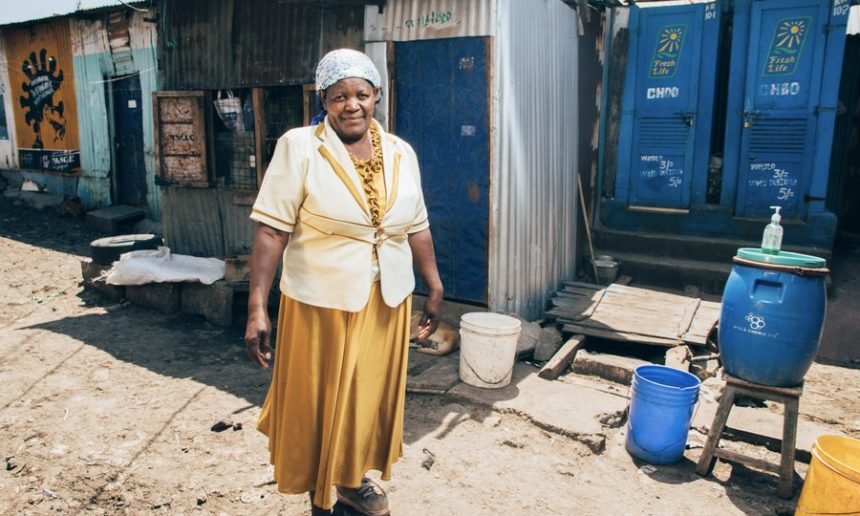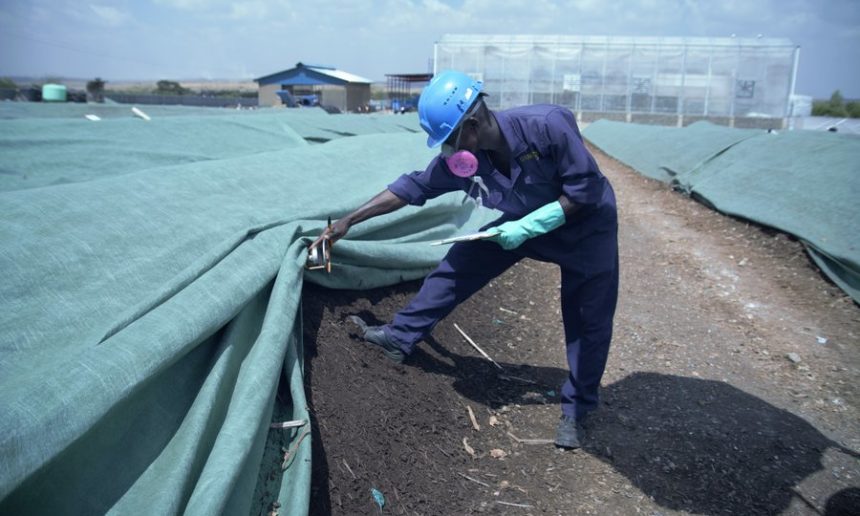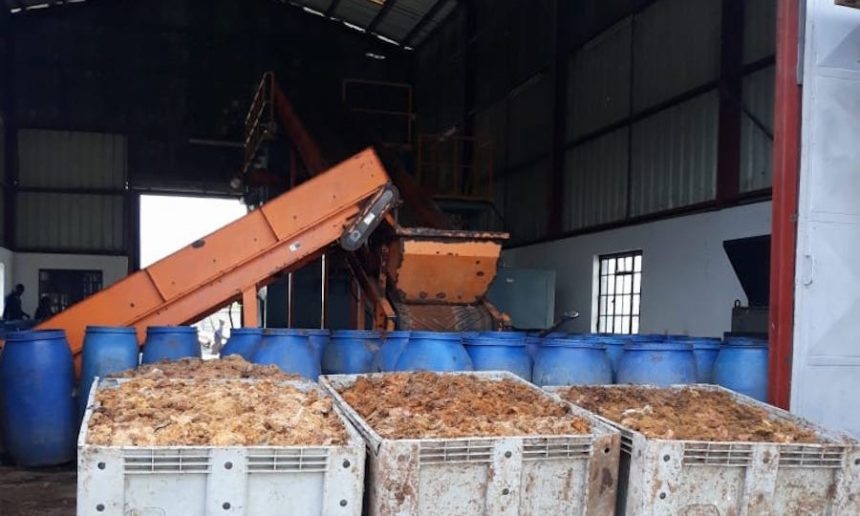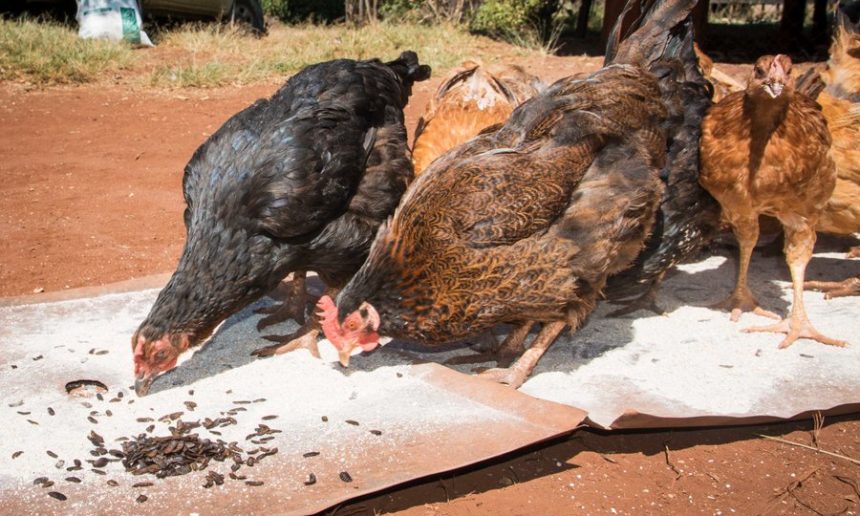Pioneer of an upcycling waste management industry
Nairobi, like many big cities, has a garbage problem. The city produces about 835,800 tons of solid waste annually, of which only 45% is collected. As the population grows, the city cannot keep up with waste management, so waste is disposed of illegally and untreated in the countryside. The consequences for the environment through soil and water pollution are serious and in turn lead to human health problems.
The Kenyan company Sanergy Limited has taken up this problem and is pursuing the goal of implementing a zero-waste recycling economy in Kenya. To achieve this, it collects organic waste from sanitary facilities, households or farms and processes it further. This results in new valuable products such as animal feed from insect proteins, organic fertilizer and briquettes from biomass for energy production.
To address the growing waste problem, Sanergy plans to build a new, larger processing plant in Kinanie, approximately 42 kilometers southeast of Nairobi, by 2020, which will recycle 65,000 tons of organic waste annually. Gexsi is participating in a sub-component of this project, the construction of a photovoltaic system that will cover part of the energy demand of the planned plant with solar power. The investment is being made through the ongoing crowd investment campaign by bettervest.
With its innovative business model, Sanergy actively contributes to the sustainable development goals of the UN.
Who is behind the project
In 2009, the three founders of Sanergy David Auerbach, Lindsay Stradley and Ani Vallabhaneni were to work on a project at the renowned Massachusetts Institute of Technology (MIT) to find a solution to a poverty problem facing billions of people worldwide. In order to offer urban slums a sustainable solution to overcome the sanitation crisis, they developed a full value-added approach based on their experience in large cities in developing countries. With this project, the Sanergy company was born. Almost three years later, on November 19, 2011 – World Toilet Day – Sanergy opened the first Fresh Life toilet in the Mukuru Kwa Njenga slum in Kenya. Since then, the Nairobi-based company has grown steadily and now employs over 250 people, 60% of whom live in the communities served by Sanergy. Sanergy is working to change the way cities like Nairobi deal with their waste. To achieve this, it is applying the concept of recycling, in which waste is recycled and waste that would otherwise end up in nature is avoided.
How can you participate in the crowdinvestment campaign shows this video:
How Sanergy contributes to the 17 Global Goals
Sustainable Cities and Communities
Improving urban waste management infrastructure (safety, hygiene, reliability) (Objective 11.5).
Clean water and sanitation
Access to clean and safe sanitation in slum areas
Responsible consumption and production
Transforming waste into valuable products such as insect proteins for animal feed, organic fertilisers or briquettes made from biomass fuel helps cities such as Nairobi tackle its waste problem (Goal 12.5)
Affordable and Clean Energy
Substitution of fossil fuels by solar energy and production of fuel briquettes from biomass (objective 7.2).
Gender Equality
Protection of women and girls through access to clean and safe toilets
Project Assessment
You can access the full project assessment here:
Images
Your Feedback
How do you like the project? Give us feedback!



